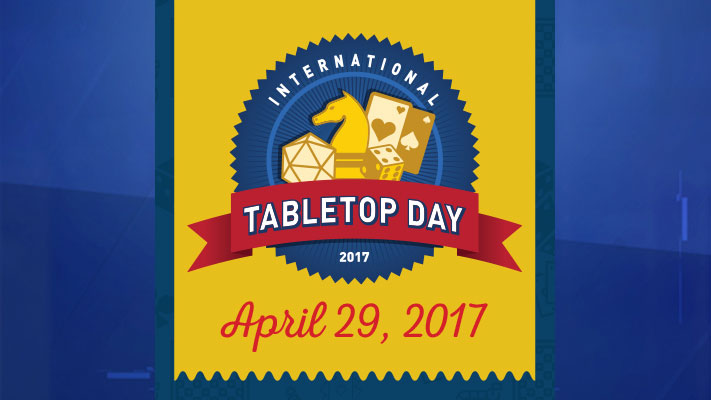Long before video games dominated the scene, families would gather to play board games. This has seen a resurgence in recent years as creative and entertaining board games have been developed.
International Tabletop Day (ITTD), started by Geek & Sundry in 2013, advertises itself as “a world-wide celebration of the tabletop gaming community and industry.” To honor it, here are 20 games from family friendly to the more mature fare that you can pick up and play on April 29 or any other day.
CLASSICS
Monopoly
Let’s start with the root cause of many fights during family game night. The current version many of us know was first published by Parker Brothers in the 1930s with properties named after locations in and around Atlantic City. Today there are an incredible number of variants to the game, including the “Here and Now” edition, an electronic banking version and versions for most universities, cities and popular TV/movie franchises.
(Fun fact: During WWII, the British secret service conspired with the U.K. manufacturer of the game to stuff maps, compasses and tools into games that were being sent to British prisoners of war being held in Germany.)
The base version Monopoly usually retails for $15-20, with variants often costing more.
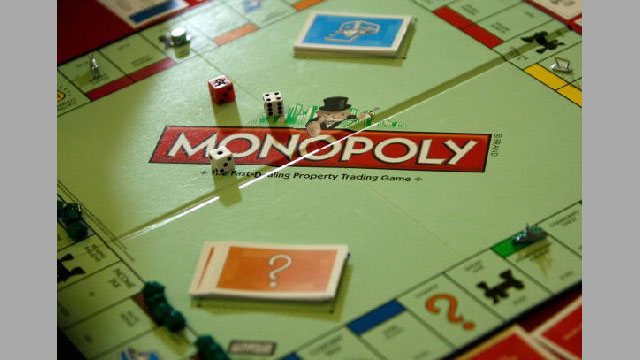
Scrabble
If you’re looking to bulk up your spelling skills or vocabulary, Scrabble is a good choice. Players have to form words in rows or columns, and the words must be defined in the standard dictionary of the Official Scrabble Players Dictionary (we found it for $5 on Amazon).
For the game’s 60th birthday in 2008, the Telegraph listed 60 facts, including that more than 150 million games have been sold in 121 countries around the world.
Scrabble starts at around $15 in stores and online.
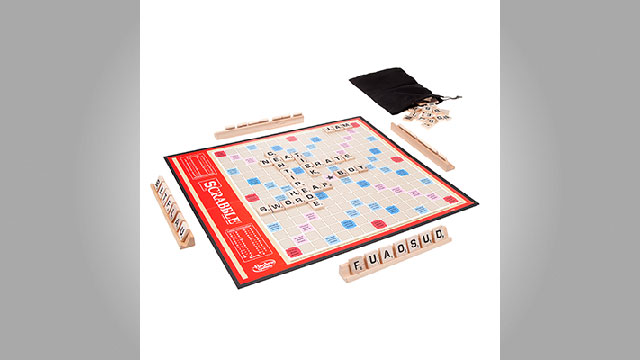
Uno
Another source of family fights, Uno is a game recommended by many people on the KVUE Daybreak crew. Use skips, reverses and wild draw fours to be the first one to get rid of the cards in their hand. The cards left over in the other players’ hands combine to create your score.
Uno has a lot of variants, but the base version of Uno sells for $5-10 at many retailers.
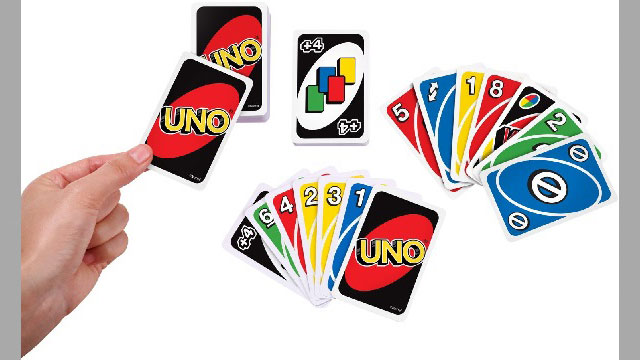
Risk
Another game with many variants, players have been trying to conquer the world in ‘Risk’ since the 1950s. The original version of the strategy board game divides the world into 42 territories on six continents, with total domination the objective.
It can take several hours to do a complete playthrough, and some players might feel like they’re being ganged up on. Fortunately (or unfortunately depending on which side of the situation you’re on), the strategy aspect of the game comes hand-in-hand with diplomacy.
Risk sells for a wide variety of prices, depending on where you shop or what variant you’re looking to play. It’s best to shop around for this.
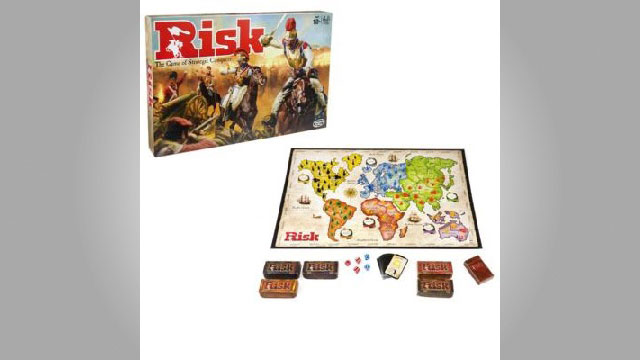
Clue
Since its release in the late 1940s, Clue (Cluedo in the United Kingdom) has been a family game night staple. Players take on the role of "colorful" guests at a manor trying to solve a murder mystery. Clue was so popular that it got its own movie in 1985, and has seen multiple variants over the years. The 2016 release has even swapped out Mrs. White for Dr. Orchid.
Clue usually sells for $10-15, with most variants starting around $20 or $25.
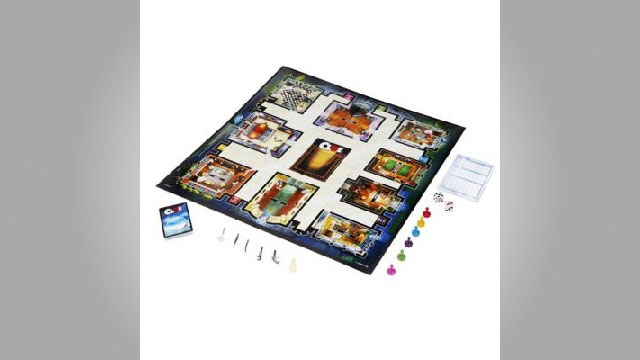
NEW CLASSICS
As you read into the next sections, you’re going to see a term associated with more than a few of these titles: “Spiel des Jahres.” This is German for “game of the year,” and is awarded by game critics and reviewers from German-speaking countries. While the written purpose is rewarding excellence in game design in Germany, this has translated to a level of quality in games and is considered by many, including Board Game Geek, to be the most prestigious award for board and card games.
Ticket to Ride
A lot of people who play board games will state they’ve played this one at one time or another. Released in 2004, it has sold more than three million copies and won the 2004 Spiel des Jahres.
The purpose of the game is to collect cards and build a rail empire across the region you’re playing (U.S., Europe, etc.). If you’re playing the U.S. map, it can also provide an opportunity to teach children U.S. geography.
Ticket to Ride usually retails for around $35-50, with more expensive versions available. Expansion packs vary in price.
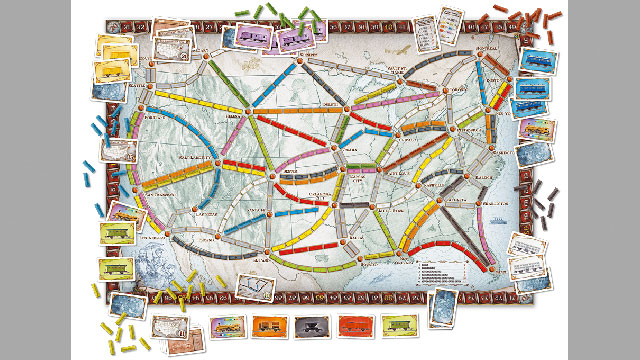
The Settlers of Catan (also simply referred to as “Catan”)
Referred to as the “Monopoly Killer” by Wired magazine in 2009, The Settlers of Catan is a juggernaut in the board game world. The game sold around 400,000 copies during 1995, the year it was released, and as of 2015 sold more than 22 million copies. It was honored with the Spiel des Jahres (and pretty much every other major prize in German gaming) in 1995.
The game’s players are on the island of Catan and compete with each other to build and develop holdings while collecting and trading resources. The layout of the island changes from game to game, adding to the replay value. Now more than 20 years old, the game is still incredibly popular, simple to learn and difficult to master.
Catan does have some variants, including a ‘Star Trek’ variant, and typically sells for around $50. An online search while writing this article found a new copy on Amazon for $27.49.
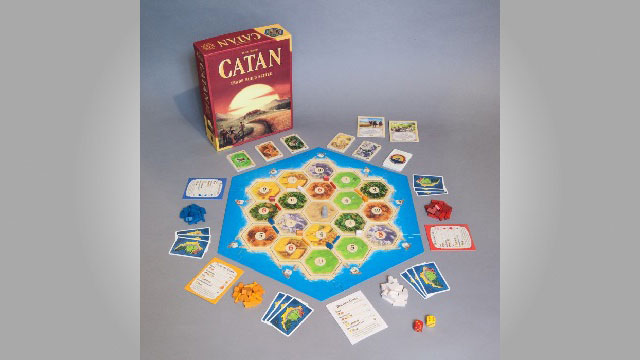
Roll For It!
This is a very easy game that many people can play at once. Roll For It has the simple premise of matching patterns on cards to what a person rolls with six die. If you don’t match the pattern completely, you can assign your die to a card and continue rolling to complete the pattern on subsequent turns, but every player is going after the same cards. The more players you have in a game, the better chance another player will complete the pattern and claim the points before it gets back to your turn again.
The original version retails for $10-20, while the deluxe version retails for $25-30.
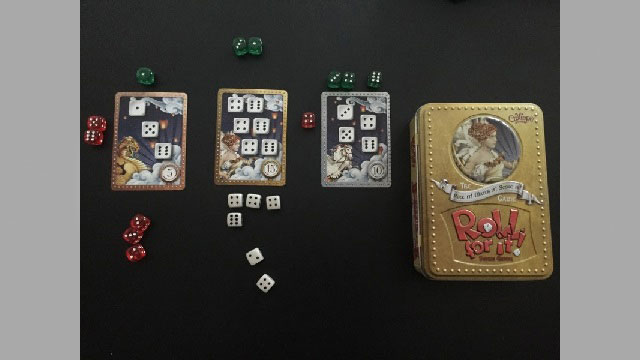
Sushi Go!/Sushi Go Party!
The first “pick and pass” game on the list, Sushi Go and its deluxe counterpart Sushi Go Party have the goal of making the best meal at a sushi restaurant. Each player starts with a predetermined number of cards, they pick one, pass the rest to the next person, reveal their card, take the hand passed to them and repeat until everyone has a meal set in front of them. Combinations of cards and sets can make for more points, and the winner is determined after three rounds.
Sushi Go! is great for 2-5 players, and Sushi Go Party! can accommodate up to eight players. Sushi Go! sells for around $10 in stores, while Sushi Go Party! sells for around $20.
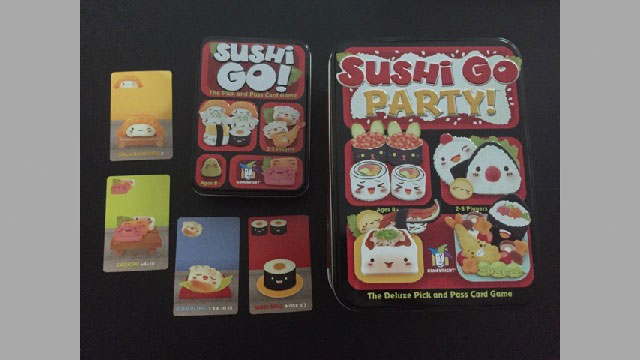
7 Wonders
Another Spiel des Jahres honoree, 7 Wonders is a card-drafting game in which players build their civilization through three ages. Gameplay is similar to the pick and pass motif of Sushi Go, but gameplay gets a little more complex as the game goes on. 7 Wonders received the inaugural “Kennerspiel des Jahres” award in 2011, which is awarded to more complex games.
The price for 7 Wonders can vary, and internet searches during this story yielded prices ranging from $25 to nearly $50.
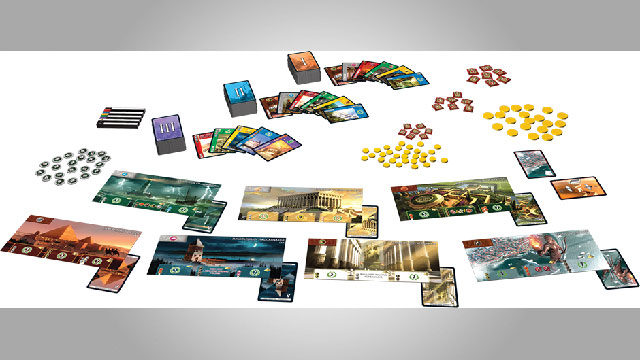
Munchkin
Designed by Steve Jackson and illustrated by John Kovalic, Munchkin is a sendup of role-playing games like Dungeons and Dragons. Players start at level 1 and have to fight their way through dungeons to make it to level 10 (20 if you’re playing an epic game). Other players can help you defeat monsters you encounter, or help the monsters defeat you!
The makers of Munchkin, Steve Jackson Games, are based in Austin and as of the end of 2016 employed around four dozen full-time staff and contractors.
Munchkin has its share of themes as well, including spies, pirates, space, westerns, Marvel (and Shakespeare is coming soon)! Base boxes retail for around $25, but you might be able to find them on sale under $20.
Fair warning: If you start playing a game of Munchkin with your friends, the people you’re playing with may not still be your friends by the end of the game.
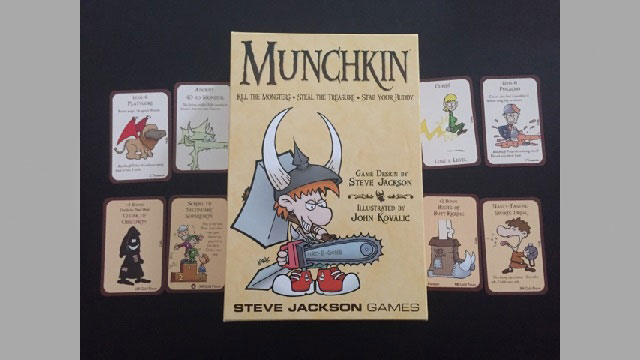
Castle Panic
KVUE spoke with employees at five Austin game stores for ITTD, and all five recommended Castle Panic. Most games have the competitive aspect where only one person or team can be the winner, but this game demands players cooperate to win.
Made by Texas-based Fireside Games, this game has up to six players working together to defend their castle at the center of the board from monsters that attack out of the surrounding forest.
Castle Panic has a few variants (zombies, Munchkin, Star Trek), and prices range from $20-35, depending on where you shop.
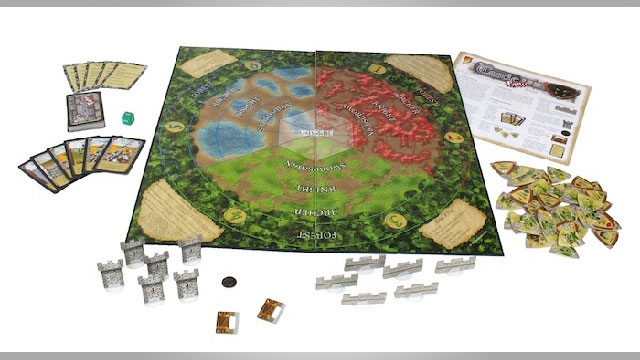
Forbidden Island
Another cooperative game from the makers of Sushi Go, players have to work together to find four treasures on an island and escape before it sinks back into the sea. This game was a finalist for the 2011 Spiel des Jahres.
A shuffling island layout and a varying difficulty make it for challenging playthroughs and encourages people to try again if they fail to make it off the island.
Forbidden Island typically sells for $15-20
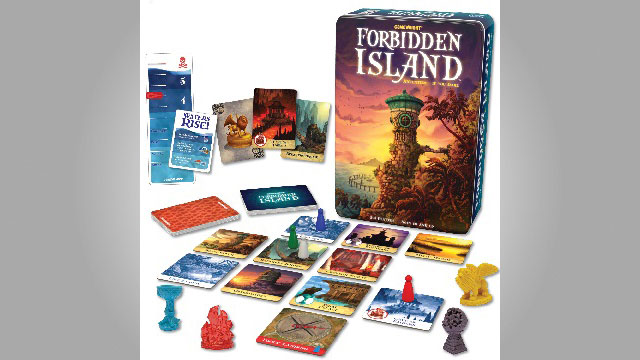
Dixit
Another recommended game by store staff, Dixit allows for creativity and humor while using dreamlike pictures. On each turn, one player - called the storyteller - looks at the six cards in their hand, picks one and makes up a sentence based on that picture. The other players pick a card out of their own hands and give it to the storyteller, then guess which picture was the storyteller's to score points. This game won the 2010 Spiel des Jahres, and typically take around 30 minutes to play a full game.
Dixit usually sells for $25-35.
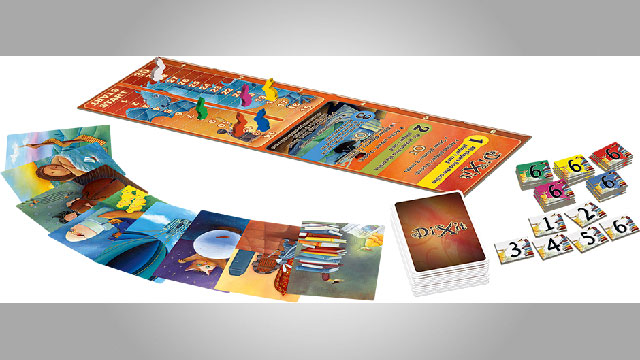
Carcassonne
Named after the medieval French town, the 2001 Spiel des Jahres winner has players create their version of Carcassonne by laying tiles on a blank surface. Tiles must be placed in a way that new ones extend features of existing tiles bordering it (roads must connect to roads, fields to fields and cities to cities). Many people credit this game with introducing the term "meeple" (a combination of my and people) to gaming.
The base version of Carcassonne can vary in price from around $20 to $35.
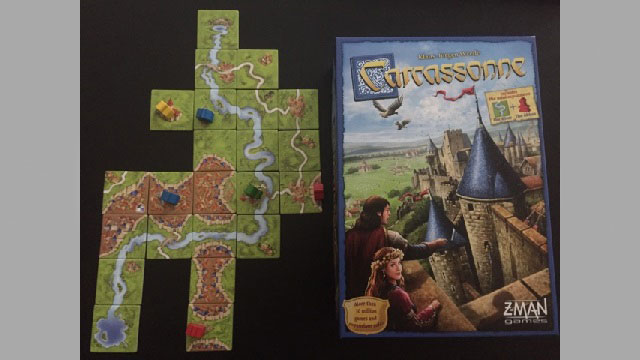
PARTY GAMES
Some of the games in this section are not for kids. Adults play table top games too and companies understand that.
Cards Against Humanity
Oh boy, where to start with this one? Since its release in 2011, this has become a staple at college and adult parties. The goal, fill in the blank with the most offensive or politically incorrect answers to prompts.
THIS GAME IS FOR ADULTS ONLY! It states ages 17 and up on the box!
The base set for Cards Against Humanity retails for around $25, with expansion packs costing around $10 each.
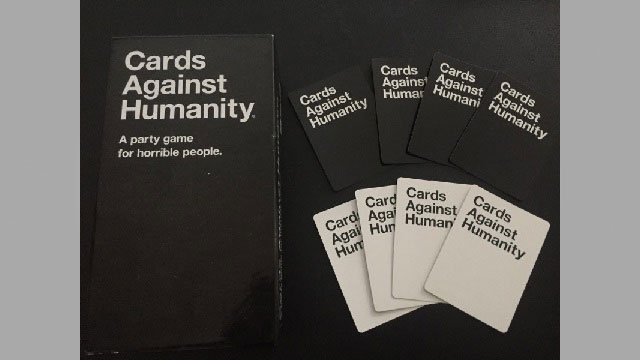
Million Dollars, But…
In the same vein as Cards Against Humanity, this game can present some fairly "not safe for work" challenges in asking what you would or would not do for one million dollars. Million Dollars, But… also shares a connection with Munchkin as both are from Austin companies. Rooster Teeth created the game, and Chief Creative Officer Burnie Burns said in a video for the show that the game was funded on Kickstarter in one minute, 42 seconds.
The game diverges from CAH by having players present both the trigger and rule cards as one scenario, whereas CAH has players fill in the blank. The game also presents a Cards Against Humanity variant if you don’t have that game.
The base Million Dollars, But… game is available on Rooster Teeth’s website and Amazon for $25. Expansion packs usually run $10-15.
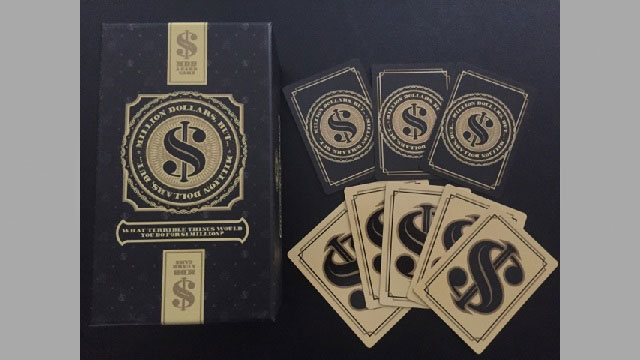
Codenames/Codenames Pictures
If you want to work on cooperation, Codenames fits the bill. Winner of the 2016 Spiel des Jahres, teams try to identify their own team’s secret agents based on the codenames provided by each team’s spymaster. On each team’s turn, the spymaster will give a clue and a number to help their team identify the cards that correspond to their team. The turn ends when the team runs out of guesses, picks an opposing team’s agent or picks a bystander. If a team selects the assassin, that team loses the game.
Some people in the KVUE Newsroom have played this game, and it is a fun way to test our communication skills.
Codenames and Codenames Pictures both usually retail for around $15.
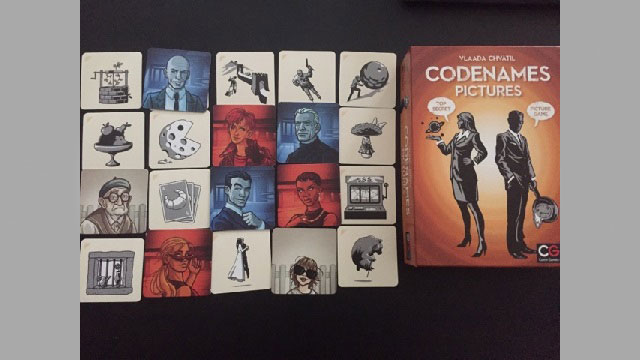
Concept
This is a great game to bulk up on your communication skills without talking. A finalist for the 2014 Spiel des Jahres, this game requires players to guess the word or phrase being indicated using pictures on the board.
For example, communicating “dolphin” to the team would involve placing the main question mark by the icon representing “animals.” The player could then place cubes by icons (“gray” and “water”) to narrow the concept down to a gray water animal. This can be a big party game where people take cards and challenge themselves and their friends to figure out concepts of increasing difficulty.
Concept sells for $35-40 at most game stores.
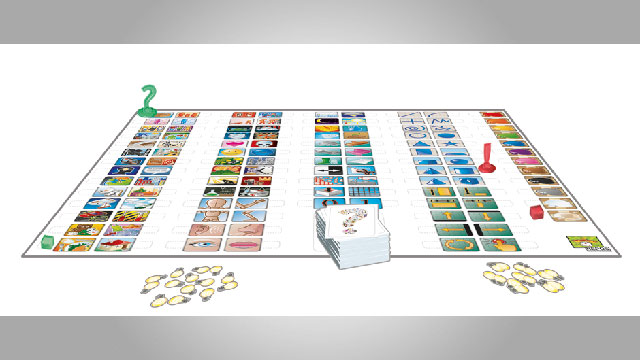
The Resistance/The Resistance: Avalon
Another cooperative game that's good for a party, this game requires a bit of deduction and deception in order for your team to win. Players are separated into resistance fighters or spies (knights and minions in Avalon), but only the spies know who else is a spy.
The players sent on a mission by the mission leader decide if the mission will succeed or fail. Resistance players must vote for the mission to succeed, but spies can vote for it to succeed or fail. The first side to three successful or failed missions wins.
The Resistance and The Resistance: Avalon both typically retail for $15-20.
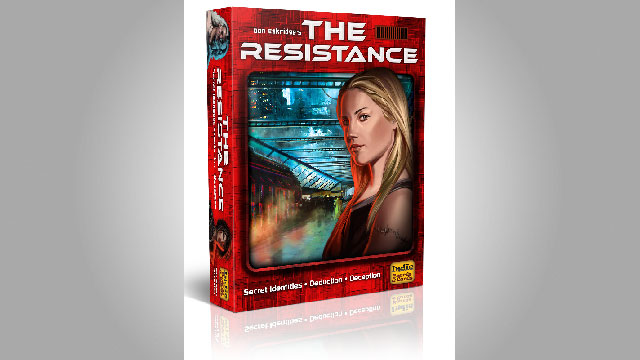
If this list didn't include your favorite table top game, that doesn't mean you should not introduce your friends to that game. The point of this list is to give players a place to start.

